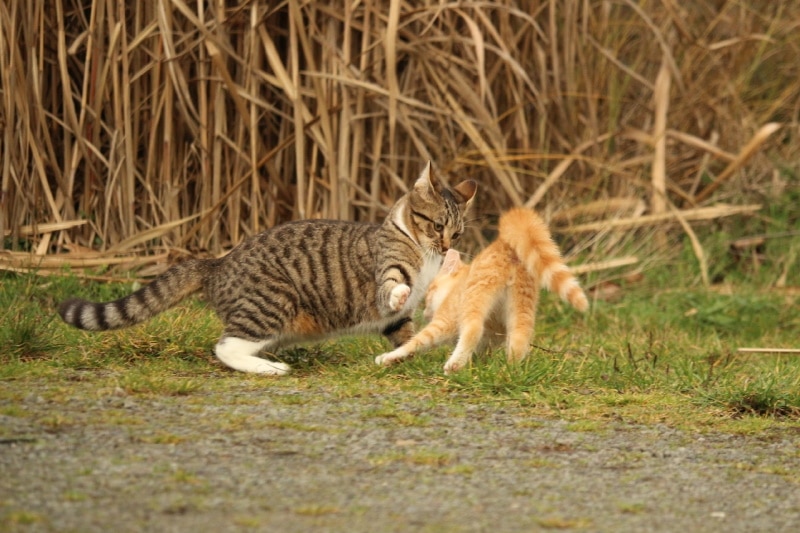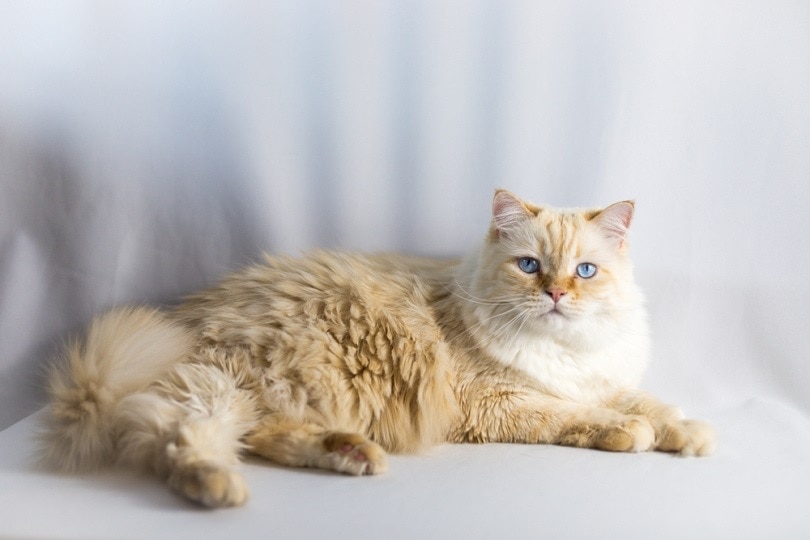Will a Savannah Cat Get Along with Another Cat? Breed Temperament & FAQ

Updated on
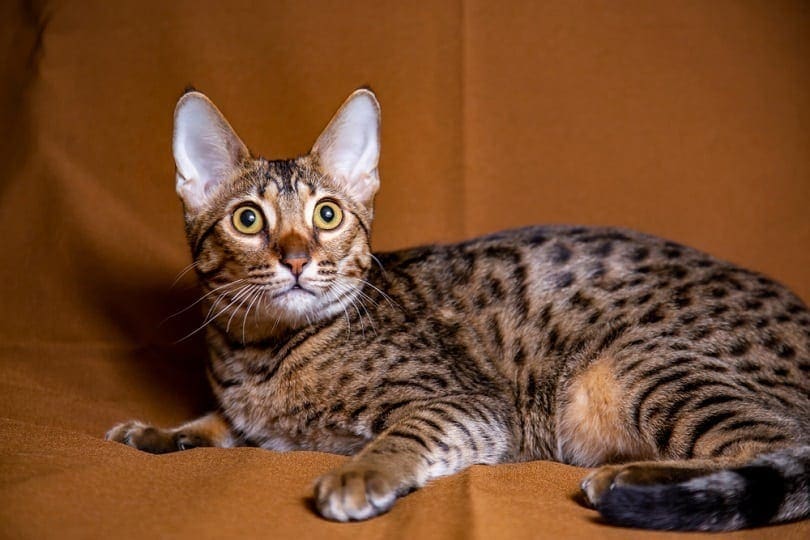
Click to Skip Ahead
If you’re thinking of bringing a Savannah cat into your family, there are a few things you should know before taking the plunge. As with any pet addition, it is important to consider the compatibility between animals when adding a Savannah cat to your home. When it comes to introducing a Savannah cat to another cat, it is possible for them to get along, but it will depend on a few factors. But as a short answer, yes, Savannah cats can get along with other cats. However it depends on different factors, let’s review them.
Do Savannah Cats Get Along with Other Cats?
As we discussed earlier, yes, Savannah cats can get along with other cats, but every cat is different and it may take a bit of warming up. It wouldn’t be a good idea to just toss the cat in the room with another cat and expect them to start playing together–The introduction should be warm so that each cat feels comfortable.
Also, you should consider the age and temperaments of both cats. It is much easier to introduce a Savannah cat to another cat when they’re both young, as cats that have grown up together are more likely to have a good relationship. It may also be beneficial to introduce them gradually, giving them time to become used to each other before allowing them to interact freely.
In addition, the size and personality of the cats can also play a role. If one cat is significantly larger than the other, it can make the relationship more difficult. The same goes for cats with very different personalities; cats that are very active or playful may be incompatible with cats that are more laid-back and relaxed.
Tips for Introducing Your Savannah Cat to Other Cats
When introducing your Savannah cat to other cats, here are a few ways to make the process go smoothly:
1. Do a Slow introduction
A slow introduction can help to reduce the risk of a potentially aggressive situation, and it can also help to encourage trust and bonding. Cats are often territorial creatures, so introducing them slowly can help to reduce any potential issues.
2. Use a Safe Location
Wherever you decide to introduce your cats, it is important that it is a safe location. You will need to have one room that is completely safe and contains food, water, and litter. You can also use a cat playpen to help keep cats safely in one area.
3. Create Positive Associations
It can be difficult to make a positive association between two cats who have never met before, but there are a few things that can help. One of these is to feed the cats at the same time and in the same room. This can help to create positive associations, and over time, you should see a reduction in any negative behaviors.
4. Consider Using Pheromones
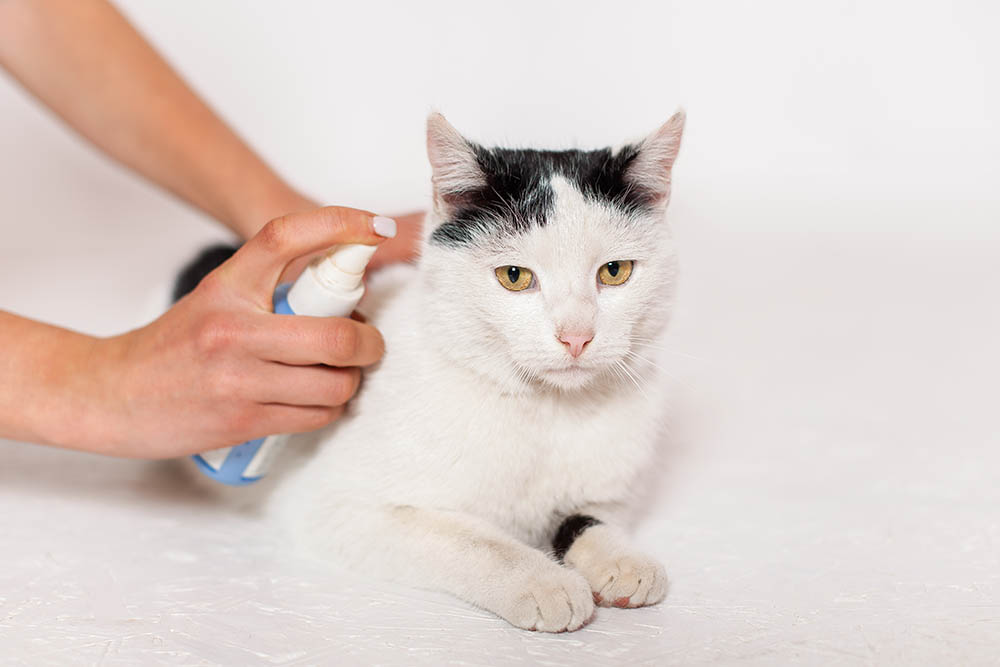
Using pheromones can also help to make positive associations between your cats. This may seem a bit extra, but it can be helpful if you have a cat that is a bit antisocial. Products such as Feliway (a synthetic pheromone that cats naturally produce) can be very useful in these situations. You can buy pheromone spray from stores like Chewy, Petco, Amazon, or local pet stores.
Frequently Asked Questions About Savannah Cats
What’s the temperament of Savannah cats?
Savannah cats are affectionate, curious, and playful by nature. Their curiosity is probably one of the most distinguishing traits of the breed. As highly intelligent animals, they love to explore and often get into trouble by getting into places they shouldn’t, like the kitchen cupboards. They’re also fairly vocal (compared to other domestic cats) and are known to meow often, especially when they want something.
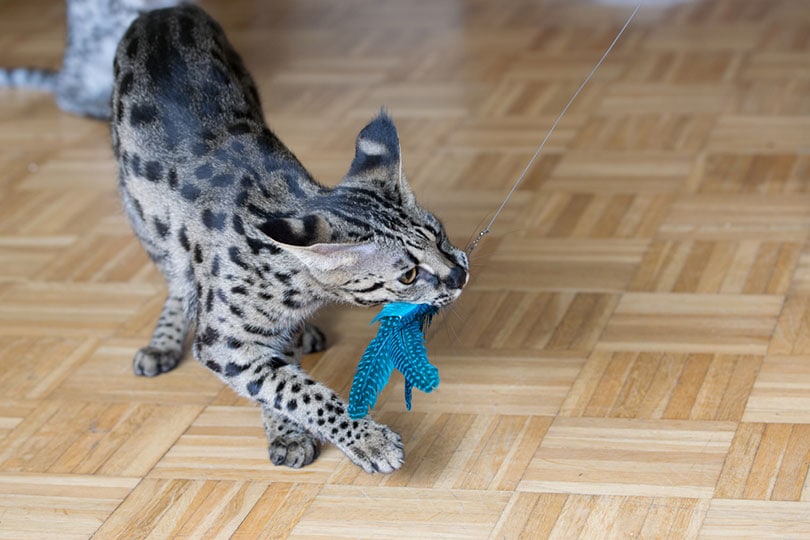
Are Savannah cats good with children?
Yes. Savannah cats are great for families with children, as they adore being around people and don’t mind the noise and activity that kids often bring. They are highly social animals that appreciate companionship, so introducing a Savannah cat to other pets as mentioned earlier is a great way to help them feel more at home and secure in their surroundings. It’s also worth noting that Savannah cats have a strong prey drive and are natural hunters, so it’s important to keep them inside the home and away from exterior doors – they’re prone to chasing rodents and birds.
Do Savannah cats need more vet care than other breeds?
These cats won’t necessarily need more care, but they’re known for having shorter life spans compared to other domestic cat breeds, so it’s important to keep an eye on your cat’s health by visiting the vet regularly. Breeders recommend that you bring your cat in for checkups once a year or sooner if they are showing signs of illness. This will allow you and your veterinarian to catch any health issues early on and treat them before they turn into something more serious. It’s also a good idea to get your Savannah cat spayed or neutered once they reach a healthy age (which is around 5 or 6 months). This will help reduce their risk of developing certain diseases and health issues later in life.
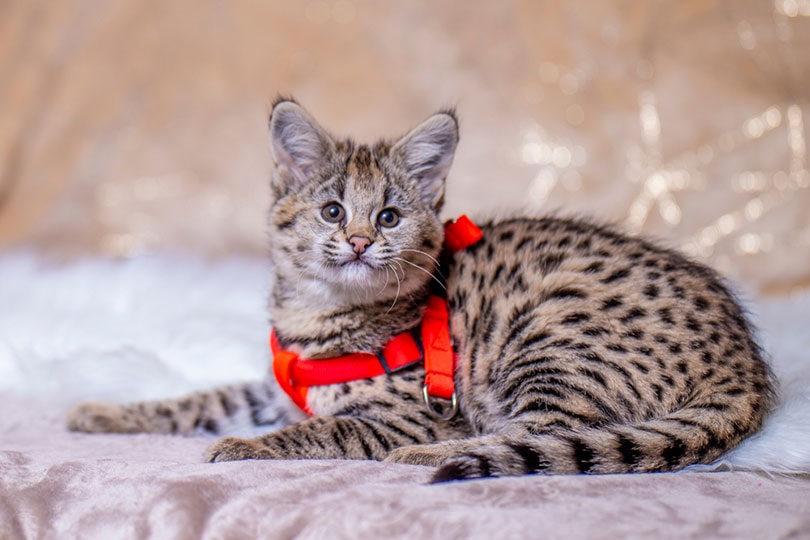
Do Savannah cats like being around families?
Yes, they’re social animals. Spending time with your Savannah cat and actively engaging them in play and other activities will help to keep them happy and busy. It’ll also help you to bond with them and strengthen the human-animal bond. Just like any other pet, they will benefit greatly from being around other people and animals. This will help to reduce their risk of developing behavioral issues and fears by exposing them to as many different things and environments as possible.
Do Savannah cats need daily exercise?
Yes. Like other cats, Savannah cats need plenty of opportunities to get some daily exercise. This will not only help them stay physically and mentally healthy but also help to reduce their risk of obesity. Savannah cats are natural explorers who love to climb and play, making them great indoor climbers. They also benefit from having a dedicated play space where they can safely play and climb without destroying all your furniture. Savannah cats also enjoy playing with various toys that involve a little bit of puzzle-solving.
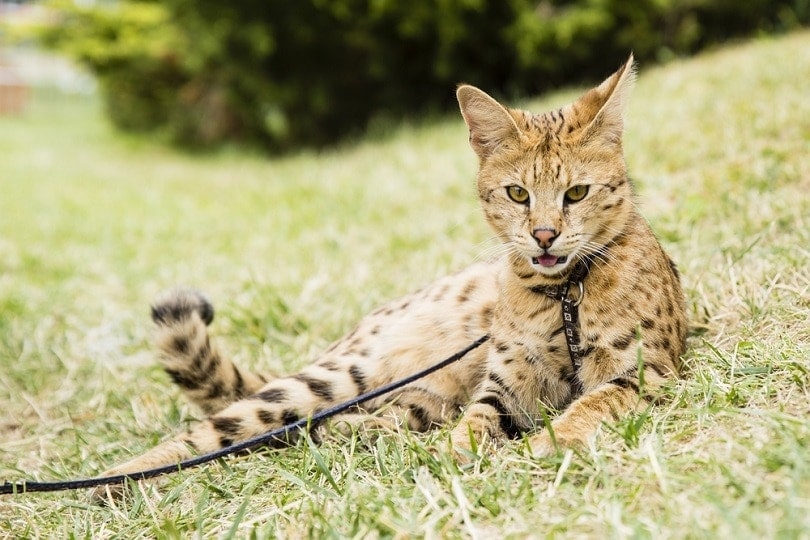
What food do Savannah cats eat?
Like other cat breeds, Savannah cats should be fed a high-protein diet that is low in carbs and has all of the essential vitamins and minerals to keep them healthy. You also need to ensure that they have fresh water to drink every day, especially in the warmer months of the year. You may want to ask your breeder what type of food they fed their kittens, as many choose premium kibble or raw food for them. You can also ask your veterinarian about recommended food for your cat or any special diet if the kitten has health issues.
How often should I groom my Savannah cat?
You’ll be happy to learn that these cats have short and smooth coats that are relatively low maintenance to groom. They don’t really need to be groomed too regularly, but it’s important to brush their coats at least once a week to remove loose fur and reduce the risk of shedding. Also, these cats don’t require any special trimming, clipping, or bathing, making them a great choice for pet parents who are short on time or don’t have a lot of experience grooming cats (or who don’t want to pay for monthly grooming). It’s also important to keep an eye out for signs of fleas, ticks, and other parasites, which can also lead to hair loss (your vet can provide collars and pills for this).
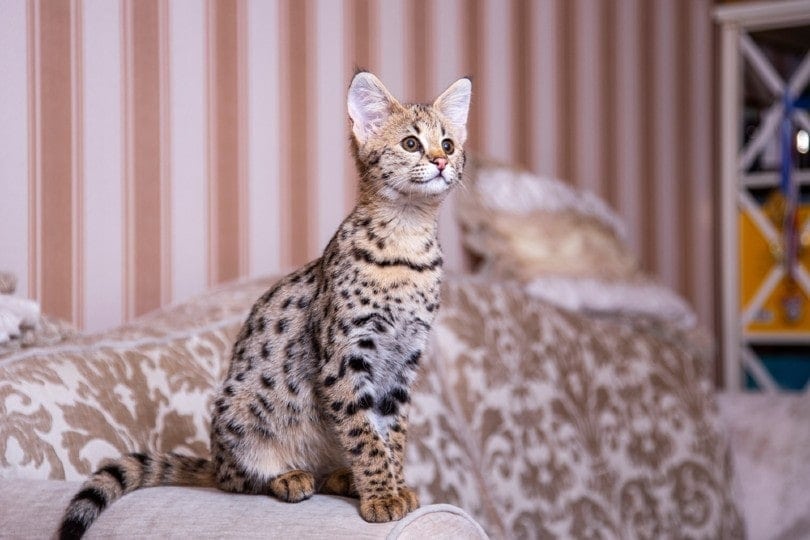
Is it a lot of work to own a Savannah Cat?
Yes and no. For the most part, you’ll find that owning this cat is pretty much the same as owning other domestic cat breeds. But as unique and beautiful as Savannah cats are, they also come with a unique set of challenges that other breeds don’t have. Note that they’re hybrids, so they don’t have a specific breed standard, meaning there is no one size fits all approach to healthcare and wellness.
It’s important to keep an eye on your cat’s health and speak to a veterinarian if you notice anything out of the ordinary. And again, they have shorter life spans compared to other breeds, so it’s important to keep an eye on their health and provide them with lots of enrichment and activities to help them stay mentally and physically active – or else they will climb the walls (literally) and scratch up your couches and drapes.
- Related Read: Will a Savannah Cat Get Along With My Dog?
Wrapping Things Up
So yes, Savannah cats can get along with other cats in your home. Overall, you’ll find that these cats make excellent companions, and living with a Savannah cat can be a unique and rewarding experience. And one of the most important aspects of caring for a Savannah cat is socializing and bonding with other cats. This can help your cat to feel secure and happy, and it can also help to prevent behavioral issues. Introducing your Savannah cat to other cats with a bit of forethought and planning helps create more comfortable relationships and it makes the process a lot better for both cats.
Featured Image Credit: kuban_girl, Shutterstock


